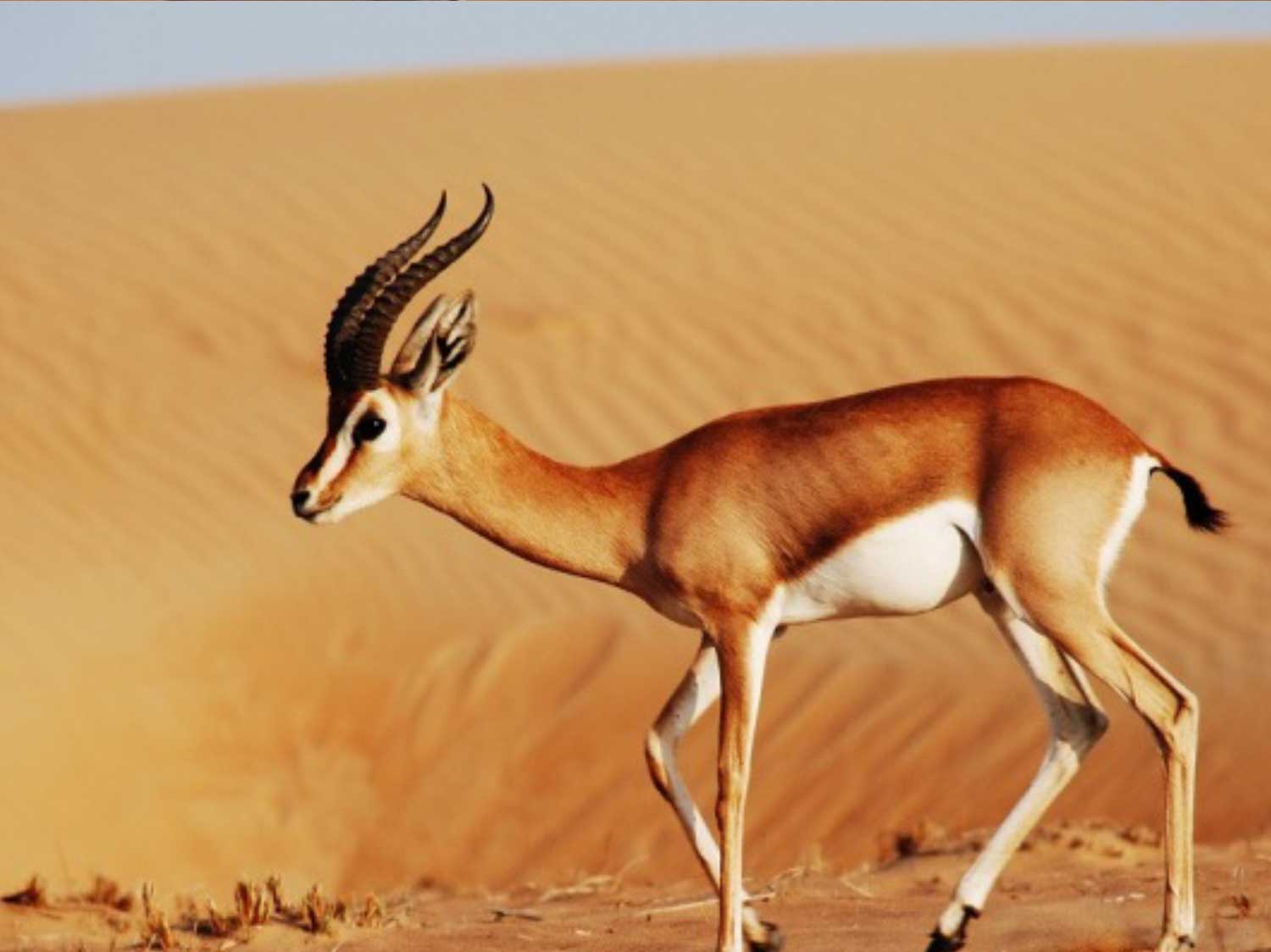
Qatar’s natural reserves cover 29% of the country’s total area, with marine reserves representing about 2% of marine and coastal areas.
A Ministry of Environment and Climate Change (MoECC) workshop revealed the successful release of Al Reem deer and Arabian oryx into natural reserves since 2002.
The workshop at the International Horticultural Expo 2023 Doha in collaboration with the General Secretariat of the Gulf Cooperation Council highlighted national efforts to safeguard wildlife.
It shed light on Qatar’s proactive stance towards environmental issues, wildlife, and biodiversity, with the Director of Wildlife Development Department at MoECC emphasising its pivotal role in enacting laws and legislations aimed at creating a healthy environment, reducing pollution, and preserving the natural equilibrium and biodiversity of the region.
Qatar boasts a unique biodiversity, encompassing a diverse range of aquatic and terrestrial species.
Director of the Wildlife Development Department at MoECC, Mohamed Ahmed Al Khanji, pointed to the country’s array of environmental laws and legislations aimed at preserving this diversity, citing programs such as the lizard biodiversity conservation project, which monitored 21 lizard species, and breeding initiatives for endangered animals like the Arabian oryx, sand gazelle, ostrich, bustard, and wild rabbit.
Al Khanji further discussed ongoing projects in the Gulf nation, including sea turtle protection, Mangrove propagation, and efforts to monitor the movements of whale sharks and dugongs.
The sea turtle initiatives in safeguarding them along all of Qatar’s coasts since 2002, is an annual undertaking.
The ministry has been examining the consequences of prohibiting camel grazing on natural vegetation.
Al Khanji also stressed Qatar’s commitment to nationwide Mangrove propagation since 1982, including a project studying Mangrove clusters along the coasts.
Drawing from this research, Qatar has formulated an action plan to expand Mangrove propagation to new areas.
The Qatari environment ministry’s commitment further delves into various initiatives such as the development of a veterinary laboratory for wild animals, infrastructure evaluation to reduce negative impacts on wildlife, and a proactive plan to monitor invasive species.
Al Khanji underlined Qatar’s natural reserves which cover 29% of the country’s total area, with marine reserves representing about 2% of marine and coastal areas.
The Al Reem Reserve gained recognition as a biosphere reserve by UNESCO in 2007.
Marine life in Qatar
In January 2023, authorities in Qatar said the country is establishing a regional centre for whale shark research, training, and education, local media reported.
The centre would eventually serve Qatar and the entire GCC region, the adviser to the Assistant Undersecretary for Protection and Nature Reserves Affairs at the Ministry of Environment and Climate Change, Prof John Man Kon Wong, told the Gulf Times.
Two offices and one laboratory have already been set up, Wong said, revealing interest by UNESCO to join in on efforts.
“We have to go through the procedures with the UN and the Unesco and hope to complete the whole process within two years,” he noted.
Qatar’s Minister of Environment and Climate Change Sheikh Faleh bin Nasser bin Ahmed bin Ali Al Thani further confirmed these reports in May that same year saying a study to establish a regional office for the whale shark in Qatar is underway.
The waters of the relatively small peninsula Arab country Qatar hosts the largest concentration of whale sharks. The gigantic white-spotted fish reached 600 in numbers in 2020 in Doha, a total that is yet to be documented anywhere else in the world.
The Gulf nation’s Ministry of Environment urged the community to avoid approaching shark gatherings if spotted, advising all who make a sighting to report it directly to the call centre at 184.
Any unsettling noises are forbidden near the areas of the animal’s gatherings to ensure their safety and well-being.
To preserve their stay and protect the environment, Qatar launched a study in 2010 of the journey of whale sharks by installing tracking devices on 12 of them.
Just a year later in 2011, the ministry also launched a project on whale sharks to study their behaviour.
As for dugongs, Qatar’s waters are home to one of the largest herds of these animals, with the number of the shy marine mammal reaching over 840, marking the largest gathering of these aquatic animals in Qatar in three decades.
The Gulf nation’s dugong population is believed to have made its first appearance in the Arabian Gulf around 7,500 years ago. However, the aquatic mammal species, the Sirenia family, dates back almost 60 million years.
The aquatic animals are an important player in maintaining aquatic ecosystems, as they contribute to maintaining healthy seagrass meadows, which are essential for fish and crustacean nurseries
For that reason, authorities are calling on all beachgoers and scuba divers to help safeguard dugongs and not impose any harm on them.